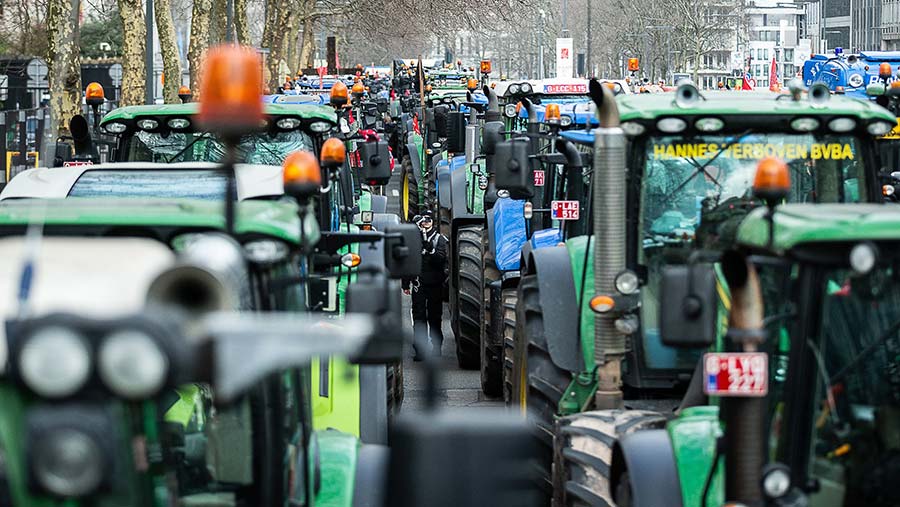Flemish farmers in mass demo against nitrogen emission cuts
 © Shutterstock
© Shutterstock Hundreds of Flemish farmers drove tractors into Brussels as part of a mass protest over government plans to limit nitrogen emissions from agriculture.
According to the police, about 2,700 farm vehicles converged on the capital city from 7am on Friday 3 March, bringing the streets to a standstill.
The vast majority had driven from the northern Dutch-speaking region of Flanders in protest against their regional government’s plans to curb nitrogen emissions on farms by limiting the use of nitrogen fertiliser and slashing livestock numbers.
They say the plans put at risk 5,000 direct jobs in agriculture and 15,000 indirect jobs.
See also: Dutch announce forced buyout of farms to cut emissions
They were also protesting over their government’s failure to unlock the latest round of EU common agricultural policy (CAP) funding for Flemish agriculture, worth €1.38bn (£1.22bn) for the period from 2023 to 2027.
The demonstration was organised by the agricultural federations Boerenbond, ABS, Groene Kring, Jong ABS and Ferm voor Agravrouwen.
The organisations behind the protest issued a joint statement, saying: “As it currently stands the nitrogen plan will create a socio-economic bloodbath.”
Hendrik Vandmme, chairman of ABS (general farmers union), said: “This tractor action is absolutely necessary. Our farmers have had to keep their businesses running in uncertainty for years and that is no longer possible.”
Last year, the Flemish regional government put forward a set of proposals to cut nitrate pollution, aimed at cutting nitrogen emissions from fertiliser and livestock numbers. The plans have not been finalised.
Similar protests have broken out across the border in the Netherlands over the past few months after the Dutch government approved a plan to drastically slash nitrogen emissions by up to 70% in 131 key agricultural areas, which could involve drastic cuts to livestock numbers.
A mass farmer protest involving around 5,000 tractors is expected to be held in The Hague on 11 March.
